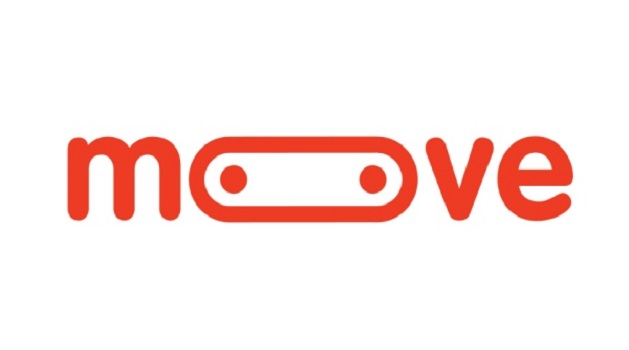General News
British International Investment Commits $20m in Moove a Nigerian Fintech Mobility Firm

British International Investment (“BII”), and Development Finance Institution (DFI), have announced a US $20 million, 4-year structured credit investment in Moove – a mobility fintech democratising access to vehicle ownership in Africa.

L-R: Benson Adenuga, Head of Office and Coverage Director of Nigeria, British International Investment; British High Commissioner, H.E. Catriona Laing CB; Jide Odunsi, co-Founder and CEO, Moove; Nick O’Donohoe CMG, Chief Executive Officer, British International Investment.
The investment reflects BII’s focus on mobilising capital to build self-sufficiency and market resilience in Nigeria, and improve access to inclusive economic opportunities while helping to catalyse the country’s boundless entrepreneurial ambition.
Last night, the British High Commissioner in Nigeria, H.E. Catriona Laing CB and CEO of BII, Nick O’Donohoe, co-hosted a business reception in Lagos to celebrate the launch of BII’s new name and reiterate the DFI’s continued ambition to scale up investment that will boost key economic sectors in Nigeria.
The event was held at the British Deputy High Commissioner’s Residence in Ikoyi, bringing together key leaders in business and BII’s investment partners from across the country. BII’s leadership outlined the organisation’s strategy to deliver productive, sustainable and inclusive investment and pledged to deepen its capital commitments to support the emergence of more breakthrough Nigerian businesses providing progressive solutions to urgent and complex development challenges.
British High Commissioner, H.E. Catriona Laing CB, said: “It’s a pleasure to be in Lagos to mark the launch of British International Investment, and to host Nick O’Donohoe during his visit to Nigeria.”
“BII forms an important part of the UK’s package of tools and expertise to help Nigeria build their pipeline for investment and scale up infrastructure investment, in particular to achieve clean, green growth.”
“The launch of BII marks a continuation of this partnership, and we look forward to seeing BII’s support expand and diversify in Nigeria.”
In his keynote speech, Nick O’Donohoe highlighted BII’s 74-year history in Nigeria, from its first investments in 1949, in West African Fisheries and Cold Store, to the organisation’s pioneering role in supporting Nigeria’s first private equity fund – African Capital Alliance’s Capital Alliance Private Equity Fund I (CAPE I).
On how BII’s new five-year strategy is driving its investment in the world’s first mobility fintech, Moove, O’Donohoe comments: “Investing in the prosperity of Nigeria’s growing population requires innovative new partnerships that can leverage the country’s abundant capabilities and expertise. In Moove, BII has a partner that aligns with our commitment to back dynamic tech-enabled businesses that can help accelerate impact in Nigeria by strengthening the country’s informal transport industry.
“I am delighted that not only will BII’s investment help to create jobs and provide entrepreneurial self-starters with the means to own their vehicles, but Moove’s clear focus on gender diversity will foster inclusive economic opportunities for women, both within the company’s workforce and among its drivers.”
Founded by serial entrepreneurs, Moove is democratising access to vehicle ownership by providing revenue-based vehicle financing and financial services to mobility entrepreneurs. The mobility fintech is creating sustainable employment opportunities to empower those otherwise excluded from financial services by embedding its alternative credit scoring technology onto ride-hailing, e-logistics and instant delivery platforms, and using proprietary performance and revenue analytics to underwrite vehicle loans.
Since its launch in 2020, Moove has rapidly expanded its operations within Nigeria and has entered into new African markets including Ghana, Kenya, Uganda and South Africa, as well as Europe, Middle East and Asia markets. Currently, mobility marketplaces such as Uber face difficulty meeting rising rider demand, due to limited access to car supply and onerous and inflexible auto leasing products for aspiring drivers. The funding from BII will enable Moove to purchase and import brand new fuel-efficient cars into Lagos, which will be leased to drivers who can then earn their way to asset-ownership, over a three to four-year period. This will also alleviate one of the key blockages to the development of ‘ride-hailing’ transportation infrastructure in Nigeria’s commercial capital.
Ladi Delano, co-founder and co-CEO at Moove, said, “We’re incredibly proud to welcome onboard a world-class partner such as BII, whose strategic support will play a key role in our mission to build the world’s largest integrated vehicle financing platform for mobility entrepreneurs.
With our new funding, we’re now in an even stronger position to use our technology and productivity data in creating a more inclusive financing ecosystem, whilst also tackling the unemployment problem affecting over a third of Nigerians by generating the opportunity for more seamless and sustainable employment.”
Nigeria is the BII’s biggest investment market in Africa, with a portfolio of nearly US $570 million, through more than 100 businesses and 43 funds, which collectively support almost 45,000 jobs across the country in 2020.
The DFI’s investments in Nigeria, both direct and indirect through various impact-led funds and intermediaries, cover a variety of sectors from clean infrastructure and energy to digital infrastructure, food and agriculture, financial services, manufacturing and logistics. A highlight of BII’s key investment activities in Nigerian include:
Backing Nigeria’s private equity industry by investing in Capital Alliance Private Equity Fund I (CAPE I), managed by African Capital Alliance (ACA); CardinalStone Capital Advisors Growth Fund; Nigerian-led Synergy Private Equity Fund II, Fund for Agricultural Finance in Nigeria (FAFIN), Verod Growth Fund III, Uhuru Growth Fund, among others.
– Bolstering Nigeria’s financial institutions to boost financial inclusion through a US $100 million loan to First Bank of Nigeria to support women and small business owners; a US $75 million investment in Stanbic IBTC Bank in 2020 to expand lending to businesses in critical sub-sectors; and helping to fund a $162.5 million syndicated loan package to Nigeria’s Access Bank Plc to increase funding to local micro, small, and medium-sized enterprises.
– Supporting the country’s food and agriculture sector through US $140 million investment in Indorama Eleme Fertilizer and Chemical Limited which is boosting fertilizer production in Nigeria and supporting local jobs.
– Catalysing early-stage innovation and entrepreneurial activities in Nigeria by investing in Venture Capital funds including US $25 million invested in TLcom, US $5 million in TradeDepot and US $5 million in TeamApt.
– Expanding access to clean and affordable clean energy through investments such as Gridworks, a pan-continental equity investment platform; M-KOPA, the world’s largest pay-as-you-go solar energy companies; and Lumos, an off-grid solar company that offers access to affordable and reliable electricity to homes and businesses in Nigeria.
British International Investment has an office in Lagos, Nigeria, which is led by Benson Adenuga.
General News
Cybervergent Selected as World Economic Forum’s 2025 Technology Pioneer Company

In affirmation of its global standing, Cybervergent, a Pan-African technology company that leverages artificial intelligence to transform how organisations manage risk, governance, privacy, and cybersecurity, has been selected as one of the World Economic Forum’s (WEF) Technology Pioneers for 2025—a global cohort spotlighting companies transforming industries through breakthrough technologies and responsible innovation.

The WEF, an international organisation committed to improving the state of the world through public-private collaboration, brings together global leaders to shape economic, technological, and societal agendas. Cybervergent now joins this global community.
The company is recognized for its innovative approach to building digital trust, reimagining how organisations manage cybersecurity, risk, privacy and governance.
Commenting on the company’s milestone, Adetokunbo Omotosho, CEO of Cybervergent, said, “I am honoured that Cybervergent has been named a Technology Pioneer by the World Economic Forum. This is more than an accolade — it’s a validation of our commitment to redefining cybersecurity, privacy, and risk management to build true digital trust.
“What makes this recognition even more meaningful is the fact that Cybervergent demonstrates innovation in AI and infrastructure can emerge from any region, challenging conventional perceptions.”
Some past recipients of the Technology Pioneer recognition, including Google, Spotify, and Airbnb have gone on to fundamentally reshape global industries.
As a member of the 2025 Technology Pioneers community, Cybervergent will be contributing to discussions shaping cybersecurity, AI, and cyber resilience across industries and the global digital economy.
General News
Moove Plans to Raise $1.2Bn Debt Round for US Autonomous Vehicle Expansion

Moove, an African mobility fintech startup, is on a quest to secure a $1.2 billion debt financing round to support the rollout of a fleet of autonomous vehicles.

This is in partnership with Alphabet Inc.’s Waymo in the United States, according to a Bloomberg report citing sources familiar with the matter.
The startup has since attracted backing, including from Uber Technologies Inc., and entered a strategic partnership with Waymo in December 2024 to provide financing for self-driving cars.
Ladi Delano, co-founder of Moove, noted that the company has a solid financial track record.
“Moove has built strong relationships with some of the world’s leading lenders. We have also fully repaid our first-ever debt facilities, which signals our maturity and marks a key milestone that demonstrates the strength of our platform as we enter the next phase of global autonomous-vehicle infrastructure deployment,” he said.
The round is reportedly oversubscribed, with strong participation from private credit firms and banks.
Waymo has also not made any official statement regarding the funding round. While final details are expected to be concluded in the coming weeks, the deal will mark a significant milestone for the firm as it ramps up its global ambitions.
Founded in 2020 by Nigerian entrepreneurs, Ladi Delano and Jide Odunsi, Moove began by providing vehicle financing for ride-hailing drivers in Africa’s largest cities.
General News
Firm Explores the Evolution of AI-powered Ransomware with Password-gated Capabilities

Kaspersky experts have revealed the inner workings of FunkSec — a ransomware group that illustrates the future of mass cybercrime: AI-powered, multifunctional, highly adaptive and operating on volume with ransoms as low as $10,000 to maximise profits.

Kaspersky’s Global Research and Analysis Team (GReAT) constantly monitors the ransomware threat landscape, where attacks continue to rise. According to the company’s latest State of Ransomware report, the share of users affected by ransomware attacks worldwide increased to 0.44% from 2023 to 2024, up by 0.02 percentage points.
While this percentage may appear modest compared to other cyber threats, it reflects the fact that attackers typically prioritise high-value targets rather than mass distribution, making each incident potentially devastating. Within this evolving landscape, FunkSec has emerged as a particularly concerning threat.
Active for less than a year since its emergence in late 2024, FunkSec has quickly surpassed many established actors by targeting government, technology, finance and education sectors. What sets FunkSec apart is its sophisticated technical architecture and AI-assisted development.
The group packages full-scale encryption and aggressive data exfiltration into a single Rust-based executable, capable of disabling over 50 processes on victim machines and equipped with self-cleanup features to evade defenses.
Beyond its core ransomware functionality, FunkSec has expanded its toolkit to include a password generator and a basic DDoS tool — both showing clear signs of code synthesis using large language models (LLMs).
FunkSec’s approach reflects the evolving landscape of mass cybercrime, combining advanced tools and tactics. Kaspersky’s GReAT experts highlight the key features that define their operations:
Password-Controlled functionality
GReAT experts discovered that FunkSec ransomware features a unique password-based mechanism that controls its operation modes. Without a password, the malware performs basic file encryption, while providing a password activates a more aggressive data exfiltration process in addition to encryption to steal sensitive data.
FunkSec packs full-scale encryption, local exfiltration and self-cleanup into a single Rust binary—without a side-loader or a companion script. That level of consolidation is uncommon and gives affiliates a plug-and-play tool they can deploy almost anywhere.
Use of AI in development
Code analysis shows that FunkSec is actively using generative artificial intelligence to create its tools. Many parts of the code seem to be automatically generated rather than manually written. Signs of this generic placeholder comments (such as “placeholder for actual check”) and technical inconsistencies, like commands for different operating systems that don’t align properly. Additionally, the presence of declared but unused functions—such as modules included upfront but never utilised — reflects how large language models combine multiple code snippets without pruning redundant elements.
“More and more, we see cybercriminals leveraging AI to develop malicious tools. Generative AI lowers barriers and accelerates malware creation, enabling cybercriminals to adapt their tactics faster.
By reducing the entry threshold, AI allows even less experienced attackers to quickly develop sophisticated malware at scale,” comments Marc Rivero, Lead Security Researcher at Kaspersky’s GReAT.
High-volume, low-ransom strategy
FunkSec demands unusually low ransom payments, sometimes as little as $10,000, and pairs this with the sale of stolen data at discounted prices to third parties. This strategy appears designed to enable a high volume of attacks, helping the group quickly establish its reputation within the cybercriminal underground. Unlike traditional ransomware groups that seek million-dollar ransoms, FunkSec employs a high-frequency, low-cost model — further underscoring its use of AI to streamline and scale operations.
Expands beyond ransomware
FunkSec has expanded its capabilities beyond the ransomware binary. Its dark leak site (DLS) hosts additional tools, including a Python-based password generator designed to support brute-force and password-spraying attacks, as well as a basic DDoS tool.
Advanced evasion
FunkSec employs advanced evasion techniques to avoid detection and complicate forensic analysis. The ransomware is capable of stopping over 50 processes and services to ensure thorough encryption of targeted files. Additionally, it includes a fallback mechanism to execute certain commands even if the user launching FunkSec lacks sufficient privileges.

 Telecom1 day ago
Telecom1 day agoMTN Nigeria Debuts Game-Changing CPaaS Platform at NextNow Forum

 Telecom2 days ago
Telecom2 days agoNCC Approves MTN, 9Mobile Roaming Collaboration Deal

 E-Financial1 day ago
E-Financial1 day agoNAICOM Issues New Licenses to SanlamAllianz Life, General Insurance

 E-Financial1 day ago
E-Financial1 day agoGTCO to Become First Nigerian Bank to List on London Stock Exchange

 News1 day ago
News1 day agoAMCON Confirms ₦100Bn Sale of Ibadan DisCo Amid Legal Disputes

 E-Financial2 days ago
E-Financial2 days agoWorld Bank Approves Extra $65m for Nigeria’s SPESSE

 E-Business1 day ago
E-Business1 day agoDomain of Deception as Attackers Deploy Spyware Under Guise of Legal Threats

 E-Financial2 days ago
E-Financial2 days agoEcobank Taps Google Cloud to Deepen Financial Inclusion
























